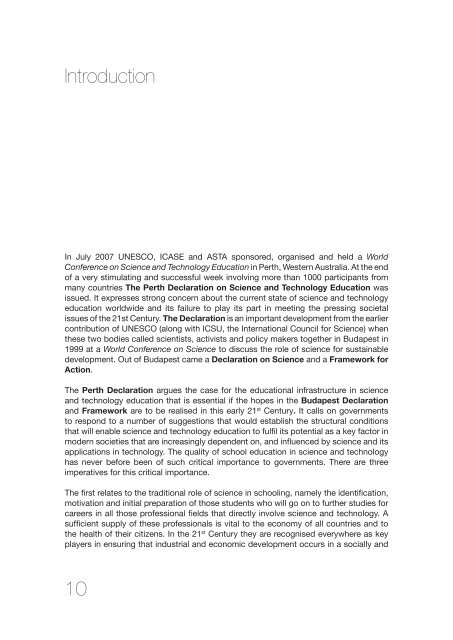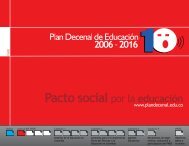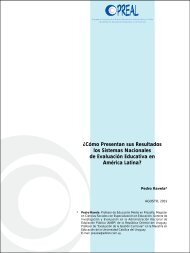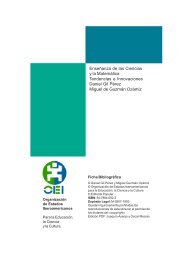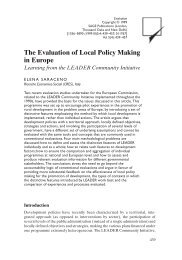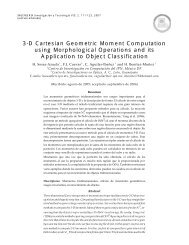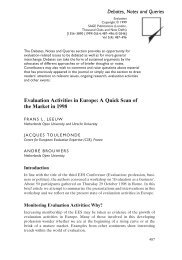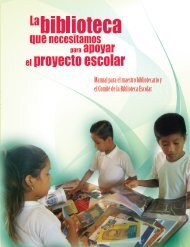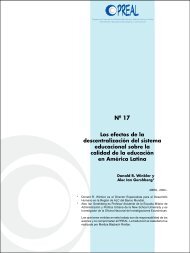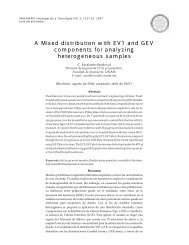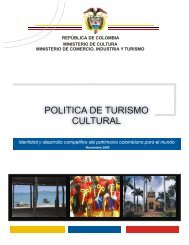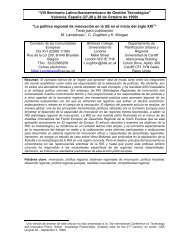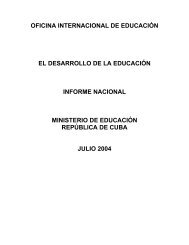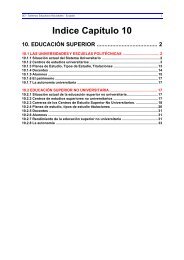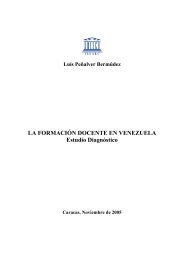Science education policy-making: eleven emerging issues; 2008 - OEI
Science education policy-making: eleven emerging issues; 2008 - OEI
Science education policy-making: eleven emerging issues; 2008 - OEI
You also want an ePaper? Increase the reach of your titles
YUMPU automatically turns print PDFs into web optimized ePapers that Google loves.
Introduction<br />
In July 2007 UNESCO, ICASE and ASTA sponsored, organised and held a World<br />
Conference on <strong>Science</strong> and Technology Education in Perth, Western Australia. At the end<br />
of a very stimulating and successful week involving more than 1000 participants from<br />
many countries The Perth Declaration on <strong>Science</strong> and Technology Education was<br />
issued. It expresses strong concern about the current state of science and technology<br />
<strong>education</strong> worldwide and its failure to play its part in meeting the pressing societal<br />
<strong>issues</strong> of the 21st Century. The Declaration is an important development from the earlier<br />
contribution of UNESCO (along with ICSU, the International Council for <strong>Science</strong>) when<br />
these two bodies called scientists, activists and <strong>policy</strong> makers together in Budapest in<br />
1999 at a World Conference on <strong>Science</strong> to discuss the role of science for sustainable<br />
development. Out of Budapest came a Declaration on <strong>Science</strong> and a Framework for<br />
Action.<br />
The Perth Declaration argues the case for the <strong>education</strong>al infrastructure in science<br />
and technology <strong>education</strong> that is essential if the hopes in the Budapest Declaration<br />
and Framework are to be realised in this early 21 st Century. It calls on governments<br />
to respond to a number of suggestions that would establish the structural conditions<br />
that will enable science and technology <strong>education</strong> to fulfil its potential as a key factor in<br />
modern societies that are increasingly dependent on, and influenced by science and its<br />
applications in technology. The quality of school <strong>education</strong> in science and technology<br />
has never before been of such critical importance to governments. There are three<br />
imperatives for this critical importance.<br />
The first relates to the traditional role of science in schooling, namely the identification,<br />
motivation and initial preparation of those students who will go on to further studies for<br />
careers in all those professional fields that directly involve science and technology. A<br />
sufficient supply of these professionals is vital to the economy of all countries and to<br />
the health of their citizens. In the 21 st Century they are recognised everywhere as key<br />
players in ensuring that industrial and economic development occurs in a socially and<br />
10


